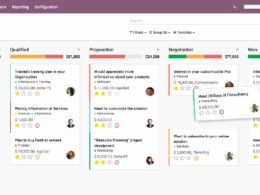Who Is the Data Controller or Processor for a Company

Data controllers are any individual or body which determines why and how personal data should be processed, such as an agency or public authority. Controllers have more stringent compliance obligations than processors.
What Is a Controller?
Simply stated, a controller is a company or organization which decides the purpose and method for processing personal data. They are accountable for complying with GDPR and any relevant legislation when doing so. They can either be legal entities such as companies, partnerships, foundations, public authorities or public authorities or individuals such as sole traders, partners in unincorporated associations or self-employed professionals (e.g., barristers).
Since GDPR took effect, every business handles personal data in some capacity; however, not all have the same level of responsibility and obligations that come with being a controller. With GDPR’s implementation this year, the distinction between controllers and processors has become much clearer: processors do not make decisions themselves but follow instructions from their controller on how best to process this information.
Controllers have the responsibility of providing easily accessible information regarding how their company processes personal data, including privacy notices and policies. This helps individuals understand why data is collected, who will use it and why. controllers also ensure personal information remains accurate for its intended use as long as necessary – thus upholding its purposeful collection and use.
Controllers must also assess the risks associated with processing personal data and take necessary technical and organizational steps to protect it against security breaches or other threats. They must be able to demonstrate they have in place adequate and up-to-date data protection procedures such as regular risk analyses and implementation of security measures such as encryption, access controls and ongoing assessments of their own security posture.
Finally, they must implement and communicate a data protection policy which is understood and followed by everyone in their organization. This might involve training staff on data protection issues or hiring a Data Protection Officer when required and setting up processes that enable individuals to exercise their rights. It’s also the controller’s duty to only work with processors who comply with GDPR while having sufficient and up-to-date security measures in place.
What Are the Main Responsibilities?
Data controllers are those responsible for choosing what personal information is collected, why, and the purposes for its collection. Essentially, controllers bear ultimate responsibility for complying with GDPR compliance (https://gdpr-info.eu/). For instance, an employee processing payroll could be considered a processor while an organization collecting employee information for marketing purposes would act as the controller determining these purposes of collection.
Controllers’ primary duties involve obtaining consent from individuals, providing clear and concise privacy notices or policies, and keeping accurate activity records. They are also responsible for implementing appropriate security measures – including encryption and access controls – to prevent their data being compromised by third parties and misused.
An integral element of being a controller is being able to respond promptly to individual inquiries about their personal information, including requests to access, rectify, erase, restrict processing or object to it. Controllers should establish processes to manage such requests while communicating the results of their decisions back to those making them.
Data controllers must only collect and process as much personal information that is essential for the purpose it was collected for. This can have multiple advantages: it lowers risk of data breach while simultaneously making sure only relevant information is being processed. In addition, controllers should work only with processors who adhere to GDPR to avoid potential fines if any processors become noncompliant.

What Is a Processor?
Processors work on behalf of controllers to process personal information on behalf of those individuals who entrust it with them, usually adhering to GDPR regulations. When processing this type of personal information, companies should never stray from the purposes and methods defined by their controller or use it for any other purposes without authorization from said controller.
Processors may include individuals, agencies, public authorities, or any other body that voluntarily holds personal data on behalf of a controller and follows their instructions when dealing with it. Examples could be staff at an international e-commerce company who handle customer names and payment details or third-party service providers like IT service providers, marketing analytics platforms and employment screening firms who handle such information on behalf of their clientele.
Controllers must ensure their processing activities comply with GDPR, such as by being transparent, providing legal justification and seeking consent for every activity they perform. In addition, they should limit how much data is processed for any given purpose and don’t keep it longer than legally mandated.
Additionally, they must ensure the data they have is up-to-date and secure at all times. Furthermore, they must respond to any requests from subjects for disclosure of data, and always provide copies of processed data back to controllers when requested.
Controllers must keep abreast of any new requirements that arise for processors in the future, such as reporting breaches. Furthermore, controllers should regularly review their own policies and procedures to ensure they reflect best practice when it comes to GDPR compliance.
At nearly every business, personal information is collected and utilized in some capacity. It plays an essential role in modern economies and many companies must store and utilize this data, such as for customer orders or marketing their products and services. With GDPR’s introduction of new obligations for controllers and processors alike, it’s essential that they fully comprehend their roles before taking action.

What Is the Difference Between a Controller and a Processor?
While both controllers and processors specialize in personal data, their roles and responsibilities differ drastically. Read this article on data controller vs data processor facts to learn more. Basically, you can think of controllers as generals while processors act as their foot soldiers.
Controllers are legal entities, agencies or public authorities who define the purposes and means for processing personal information. They work independently or with other controllers. These nifty processors work directly under instructions from controllers to process their specified data sets as directed by them.
As an example, Sterling Company wants to know which pages on their website are receiving the most traffic and why. They enlisted Google Analytics’ assistance in gathering this information; but the company still needs to decide why and who this data will be used by; making them the controller in this instance before providing it to a processor who will process it according to those instructions.
Processors must adhere strictly to their instructions from controllers, even if they believe otherwise would serve a greater purpose. They will only use any personal information collected for purposes specified by them and should never use or disclose it without having received explicit approval from them first.
So, while both roles are essential, controllers possess more authority and decision-making power. Their duties include setting forth the purpose for collecting personal information, giving privacy notices to individuals, and obtaining their consent before collecting said data. They must also ensure it remains accurate, up-to-date, and limited only as required to fulfill its stated purpose and nothing more (yet still, nothing less).
Controllers often choose to appoint processors to fulfill various processing tasks on their behalf, typically through a contract that meets GDPR’s requirements. When doing this, processors often appoint sub-processors who specialize in more specialized or complex processing activities on behalf of the processor.
Under the GDPR’s penalties and liabilities for noncompliance, both controllers and processors will be held accountable for their actions. To ensure they both share equal levels of responsibility and stay aligned, controllers should form contracts with any processors they work with – these contracts should include codes of conduct/certification to demonstrate compliance with both GDPR laws as well as other applicable ones.
As part of your company’s digital information handling strategy, it’s crucial that the distinction between controller and processor be drawn clearly as your client and your employee’s private information should be kept that way, at even the highest cost. While a controller makes decisions regarding why and how data processing occurs, a processor only follows instructions from its controller without making decisions themselves or being accountable to any subjects directly.
Due to their distinct roles and responsibilities pertaining to protecting personal information from breaches under GDPR guidelines. Processors must implement appropriate security measures to promptly report breaches to their controller as well as uphold rights as stated within GDPR regulations when handling personal subjects’ rights according to GDPR guidelines.
- Finding What to Watch: Streaming Apps Like JustWatch - July 5, 2024
- The Future of Digital Publishing Trends to Watch - July 5, 2024
- Modifying Arrays with JavaScript Array.splice() Method - July 5, 2024








